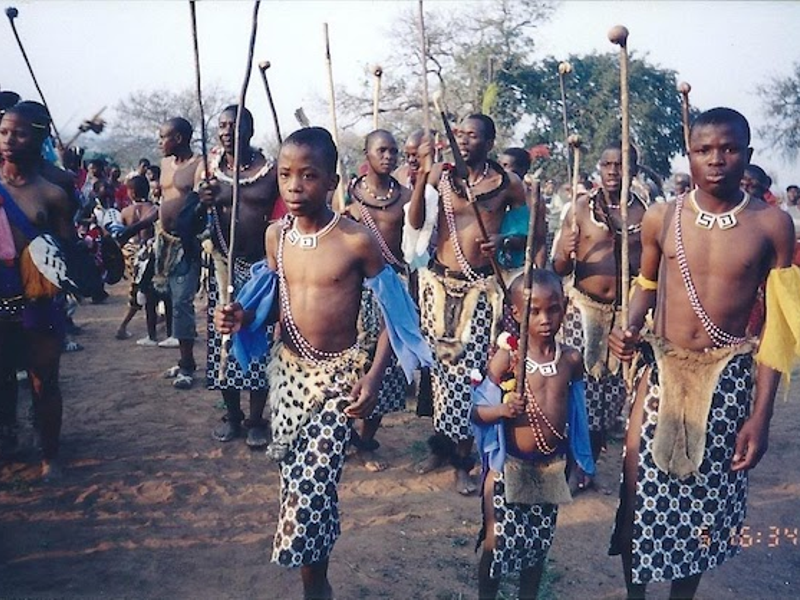
On this day, September 6, 1968, eSwatini achieved independence from the British. Join us as we celebrate this South African country. Let’s jump right in!

In 2018, on its 50th independence anniversary, the country formerly known as Swaziland was renamed the Kingdom of eSwatini. eSwatini translates to ‘the land of the Swazis.’ King Mswati III, who has been in office since 1986, made this change because he claimed whenever the country’s representatives went abroad they were confused with Switzerland. eSwatini has two capitals, Mbabane, the administrative and judicial capital, and Lobamba, the legislative capital.

(Mbabane, eSwatini)
The current king has 15 wives, a modest number compared to his predecessor, who was said to have at least 70 wives. The king is known as ‘the Lion,’ and his mother, the Queen Mother of the country, is known as ‘the Great She Elephant.’

(King Mswati III)
The country has a population of approvimately 1.2 million. As Africa’s only remaining absolute monarchy, the country’s governing body keeps the media on a tight leash. Reporters risk facing criminal charges for speaking out against the governmental or its practices.

(Eswatini males)
Because dance is so important to the country’s identity, most ceremonies include the expressive art form. Some eSwatini festivals include the Umhlanga and Buganu. The Swazi tribe make up about 85% of the country, and Zulu, Tsonga, Indian, Pakistani, Portuguese and others comprise the rest of the population.

(Women at the Buganu festival in eSwatini)
Before eSwatini’s independence, the country had no prisons. If someone committed a serious crime, they were taken to Nyonyane Rock, or Execution Rock, and thrown off the top of the cliff.
eSwatini’s economy composed mostly of agriculture and manufacturing. eSwatini mainly exports sugar, wood pulp, soft drink concentrates, beef and cotton.
Cows are very valuable in eSwatini. Citizens pay for bride prices, land and more in cows, which average at about $500 US dollars each.
Some of the country’s food and beverages include Sidvudvu, sweet pumpkin and cornmeal porridge, Shishwala, or porridge with vegetables or meat, Sidlwadlwa, meat stew with peanuts and cabbage, and Sibebe, the local beer.

(Sibebe, an eSwatini beer)
The country has been criticized for its human rights issues, which include gender bias, hate crimes, poverty and a lack of freedom of speech.
There is a cultural belief that if an eSwatini woman eats the tongue of a cow, she will talk back to her husband. It is also believed that if a wife eats the feet of a cow or if a husband buys her shoes she will run away, and if she eats the brains of a cow she will become intelligent.
In 2017, the World Bank reported that 58.9% of eSwatini’s citizens live in poverty. Due to economic difficulties, many eSwatini citizens travel to South Africa in search of opportunity and send funds back home to help their families. The country also depends on South Africa for approximately 85% of its imports and 60% of its exports. UNICEF also reported that eSwatini has the highest rates of HIV in the world.
Like any other society, eSwatini has its jewels and drawbacks. One thing the US can learn from this country is that it’s never too late to do some rebranding.





